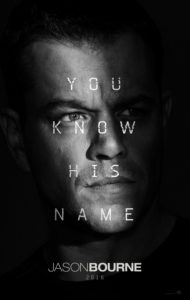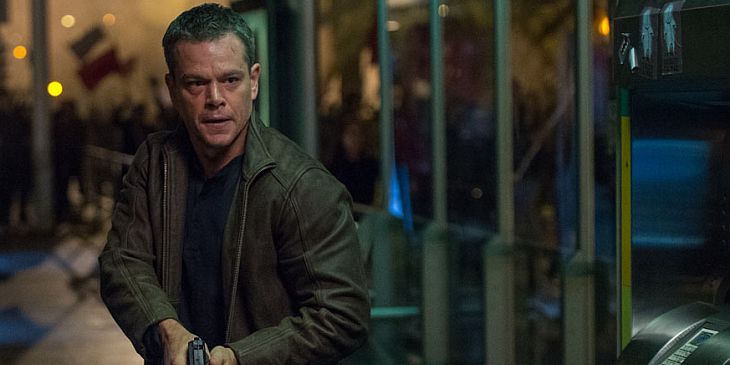 The return of Matt Damon brings a sense of familiar back to the Bourne franchise, but lacks the purpose of those earlier adventures.
The return of Matt Damon brings a sense of familiar back to the Bourne franchise, but lacks the purpose of those earlier adventures.
The Bourne Identity set the tone for a decade of action films and spy thrillers, with director Doug Liman’s gritty take imitated and aspired to by other franchises. Two sequels by Paul Greengrass rapidly followed, but like the original Robert Ludlum novels that inspired them, the concepts transcended even the titular character in Tony Gilroy’s The Bourne Legacy. The Bourne films have become shorthand references for what we mean when we talk about ‘sophisticated’ action movies, Yet with JASON BOURNE, both the original star and Greengrass return for a soft reboot that apes the style of the first trilogy, even if its left some of its substance behind.
Following the recovery of his memory and the exposure of government secrets, Jason Bourne (Matt Damon) has been whiling away the hours in the hinterlands of Europe as a bare-knuckle boxer. He is forced to resurface when former Company spy Nicky Parsons (Julia Stiles) takes a leaf out of Edward Snowden’s book and manages to hack all of the agency’s conveniently labelled black ops files, including new information about Bourne’s father. With CIA director Dewey (Tommy Lee Jones) and his ambitious subordinate Heather Lee (Alicia Vikander) in pursuit, they let loose an assassin with a grudge, known only as the Asset (Vincent Cassel). Cue the prelude to the Moby music.
There’s something incredibly familiar about JASON BOURNE. The film’s promotional material is based around the slogan “You know the name,” recognising that shorthand awareness in audiences everywhere, and it’s very much the philosophy behind Paul Greengrass and Christopher Rouse’s screenplay as well. Replicating the structure of his earlier films, there is an illusion of movement to this latest outing. Spy craft is reduced to finding MacGuffin’s literally labelled “Encrypted” and “Secret” in giant fonts, while a world-weary Damon goes through the motions of familiar chase sequences and fist fights. The locations continually change, from Greece to Las Vegas, sometimes achieving immediate impact in the moment. There’s a motorcycle chase that’s technically every bit as tense as the acclaimed car chase from The Bourne Identity, but it’s a hollow moment, without the corresponding sense of urgency or purpose of the earlier films.
Which is perhaps why JASON BOURNE falls short of its own legacy, failing as it does to ever unearth a compelling reason for us to care. Where the original trilogy was based around the simple search for identity and the need for closure, here Bourne is just an actor in the power plays of Dewey and Lee. He is physically present, but his noticeable absence of significant dialogue sets him up as nothing more than a mere prop. Jones is a typically po-faced lawman, a few promotions north of The Fugitive, and Vikander is singularly perfunctory in her flipping allegiances. The Asset is such a generic assassin that someone of Cassel’s stature was hardly warranted, even if he can twirl a mustache with the best of them.
The politics are certainly highly topical, ripping through government hacking and using the Greek civil unrest as a backdrop to action. The implications of tech giant Aaron Kalloor’s (Riz Ahmed) Deep Dream social media platform, and the desire for governmental monitoring, mirrors the recent Apple hacking scandal, and warranted more than the precious few minutes of screen time it was afforded. JASON BOURNE, like the actor who plays him, has reached its middle-age. While the spirit still appears to be willing in what is ultimately a sly first chapter for a rebooted saga, it might be best to retire this agent to a comfortable desk job.
2016 | US| DIR: Paul Greengrass | WRITERS: Paul Greengrass, Christopher Rouse | CAST: Matt Damon, Tommy Lee Jones, Alicia Vikander, Vincent Cassel, Julia Stiles, Riz Ahmed | DISTRIBUTOR: Universal Pictures (AUS) | RUNNING TIME: 123 minutes | RATING: ★★½





